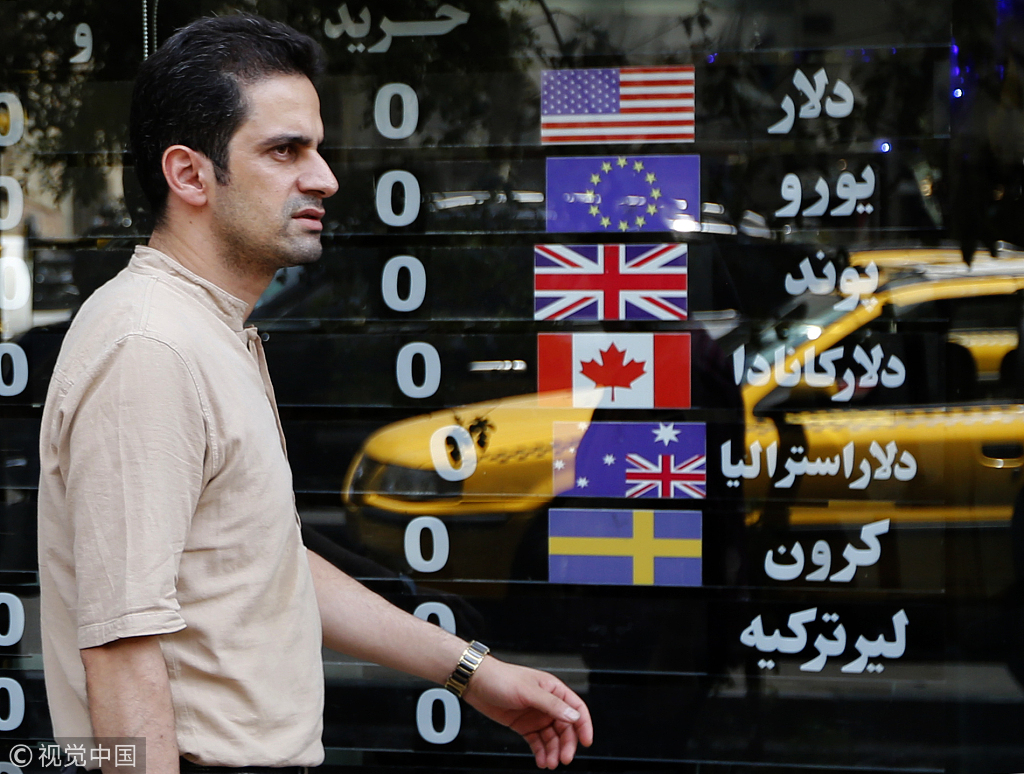US intimidation won't succeed in bringing nations to their knees


The Donald Trump administration reimposed a first batch of economic sanctions on Iran this week while continuing to wage trade wars against the rest of the world. What the sanctions and punitive tariffs have in common is the belief that the United States, given its economic and military might, can bring other nations to their knees through coercion and bullying.
History, however, has proven that such tactics fail most of the time. The US has imposed an embargo on its small island neighbor Cuba for 60 years, yet the embargo, called a blockade by Cubans, has not crumbled the Cuban government.
The same is true for the Democratic People's Republic of Korea which has also been heavily sanctioned by the US government over many years. The joke in Washington among some Korean Peninsula experts is that many US politicians think the regime in Pyongyang will have collapsed when they wake up the next morning. That has proven wrong day after day and year after year.
Iran, too, has survived decades of brutal US sanctions.
I have not yet been to Iran and the DPRK but I have visited Cuba three times. What the US sanctions have achieved there is impoverishing the Cuban people, especially women and children.
The US sanctions have failed to achieve their purpose of bringing these countries to their knees. It is na?ve to believe that nations will simply surrender if the US puts pressure on them. On the contrary, it often unites their people and makes them stronger, as a Chinese proverb from 2,000 years ago says: "Brothers fighting at home will unite to fight against an outsider together."
The Chinese fought against the US in the bloody Korean War in the early 1950s despite the fact that the US had the absolute military supremacy. So it is wishful thinking that the US can force China to cave in with its bullying tariff tactics.
It is disappointing that US pundits, while criticizing Trump's trade wars and reimposing economic sanctions on Iran, have not used words like coercion, intimidation, blackmailing and bullying to describe his behavior. They would not hesitate to use such words if it were China or Russia committing such actions against other nations.
The US has long put itself beyond the international community and the United Nations. As a permanent member of the UN Security Council, the US has reneged on its international obligation by withdrawing from the Iran nuclear deal or the Joint Comprehensive Plan of Action. What's worse is that it wants to punish other nations which abide by the deal endorsed by the UN Security Council.
If such high-handedness is left unchecked, it will set a bad precedent for the international community and endanger the authority of the United Nations.
This is not to mention that trade wars and economic sanctions, especially the second batch to be put in place in early November on Iranian oil, will cause great damage to the global economy, oil markets and the livelihoods of ordinary people, including Americans.
China has made it clear that it is always opposed to such unilateral sanctions and long-arm jurisdiction. Russia and the European Union, including France, Britain and Germany, which are also parties to the JCPOA, have also opposed the reimposed US sanctions.
The international community should form a united front against such US intimidation and bullying. It should send a clear message to Washington that Trump's unilateral sanctions and punitive tariffs are a great threat to the global community and they will not let him succeed.
The author is a columnist at China Daily.

































